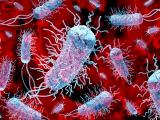Oct 8, 2012
Rhode Island requires flu shots or masks for healthcare workers
Unless they are medically exempt, healthcare workers in Rhode Island must now be vaccinated against flu or else wear a mask when in contact with patients during times of widespread flu, under rules announced Oct 5 by the Rhode Island Department of Health. Flu immunizations will be required for all workers, students, trainees, and volunteers who may routinely have direct contact with patients, the department said in a press release. The Providence Journal, a Rhode Island newspaper, said the state is the first to impose such a requirement and that healthcare workers' unions opposed it. The health department said workers who have a medical reason for avoiding the immunization may get a medical exemption from their provider each year. Those who oppose immunization but are not medically exempt must submit a form stating their refusal to be immunized and their understanding that they will be required to wear a surgical face mask during contact with patients in declared periods when flu is widespread. Health department Director Michael Fine, MD, said the masking requirement was limited to times of high flu activity in response to opponents' concerns, according to the Journal. The health department "listened closely to all stakeholders and used that feedback to craft amendments that addressed the concerns of healthcare workers and volunteers, while protecting patients from the threat of influenza," Fine said in a press release. The requirement does not apply to visiting family members and friends of patients.
Oct 5 Rhode Island press release
Oct 5 Providence Journal stories: first and second
FSIS nearly triples beef covered by E coli warning
The US Department of Agriculture (USDA) recently nearly tripled the amount of Canadian beef covered by an earlier public health warning about possible Escherichia coli O157:H7 contamination, according to an Oct 5 update from the agency's Food Safety and Inspection Service (FSIS). The amount of beef recalled by Canada-based XL Foods has expanded several times since early September when the Canadian Food Inspection Agency (CFIA) launched its probe of the tainted beef. The recall now covers all raw meat produced on Aug 24, 27, 28, 29, and Sep 5. The FSIS said it previously reported that US firms received about 890,000 pounds of recalled boneless beef trim from XL Foods, but after conducting recall effectiveness checks, it estimates that US companies received 1.1 million pounds of trim and 1.4 million points of primal and subprimal cuts from the Canadian company. The FSIS said the primal and subprimal cuts are used to produce steaks, roasts, mechanically tenderized steaks and roasts, and ground beef. The agency also issued a retail distribution list that said 23 grocery chains, some of them with nationwide distribution, sold the meat. In a related development, five more Canadians have been sickened in an E coli O157:H7 outbreak linked to the recalled beef, pushing the total to 10, the Public Health Agency of Canada (PHAC) announced on Oct 6. So far no related illnesses have surfaced in the United States.
Oct 5 FSIS public health alert update
Oct 6 PHAC outbreak update
Frozen strawberries suspected in big German gastroenteritis outbreak
German health officials suspect that a single batch of frozen strawberries is the source of a gastroenteritis outbreak in Germany that has sickened more than 11,000 children at schools and daycare centers, according to an Oct 6 Associated Press (AP) story. Officials from the Robert Koch Institute, the country's national disease control agency, said on Oct 5 that epidemiologic studies show a strong connection between consuming foods prepared with the strawberries and illnesses involving vomiting and diarrhea. Authorities added that they have more evidence that norovirus is the cause, though they haven't completely ruled out other pathogens, the AP reported. A spokesman for the German agriculture ministry said the strawberries came from outside the European Union.
Related Oct 1 CIDRAP News item
As Sierra Leone's cholera epidemic wanes, death toll reaches 280
The cholera epidemic in Sierra Leone reached 20,736 cases with 280 deaths as of Oct 2, but the outbreak is steadily declining, the World Health Organization (WHO) reported today. The latest numbers compare with about 19,000 cases and 274 deaths reported on Sep 25. "In the last 2 months, remarkable progress has been made in controlling the outbreak," the WHO said. "A steady decline in daily reported cases continues to be observed." Only two deaths were reported between Sep 23 and Oct 2. The western part of the country, including Freetown, the capital, has been hardest hit, accounting for more than half of all cases, the WHO said. Sierra Leone's government has used a multisectoral approach to respond to the epidemic and has been aided by a number of international partners and donors.
Oct 8 WHO statement



















